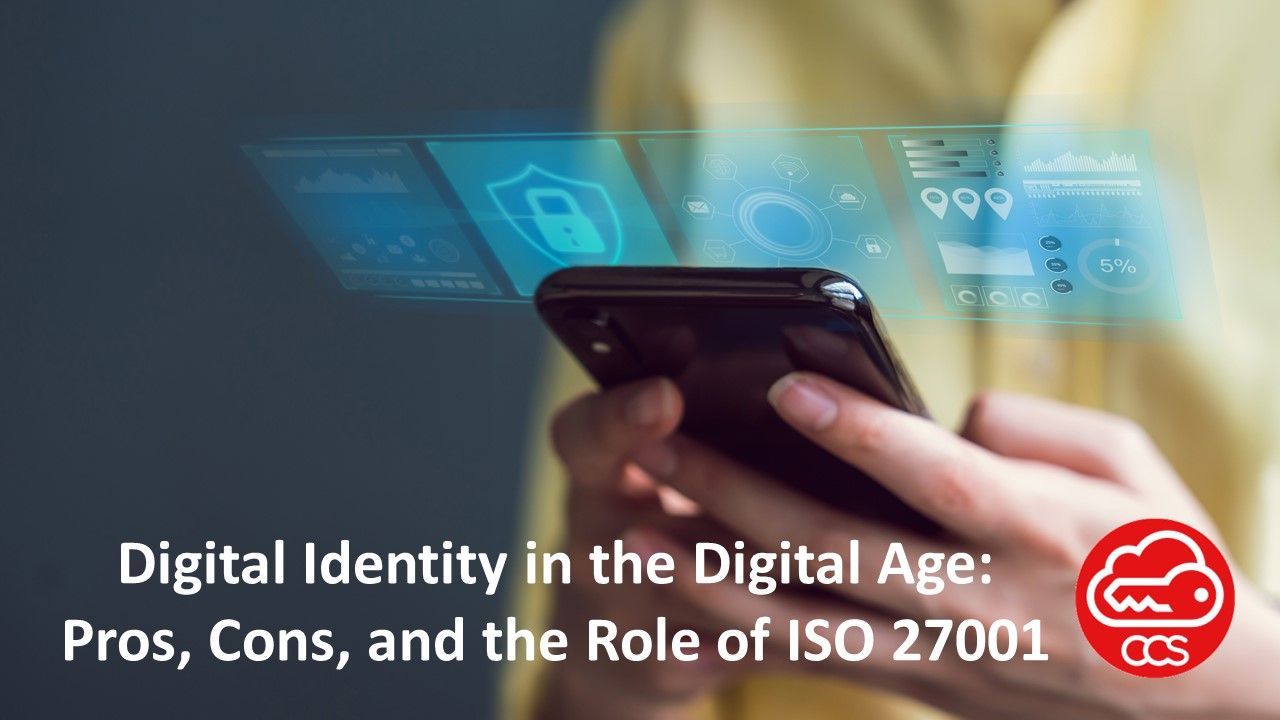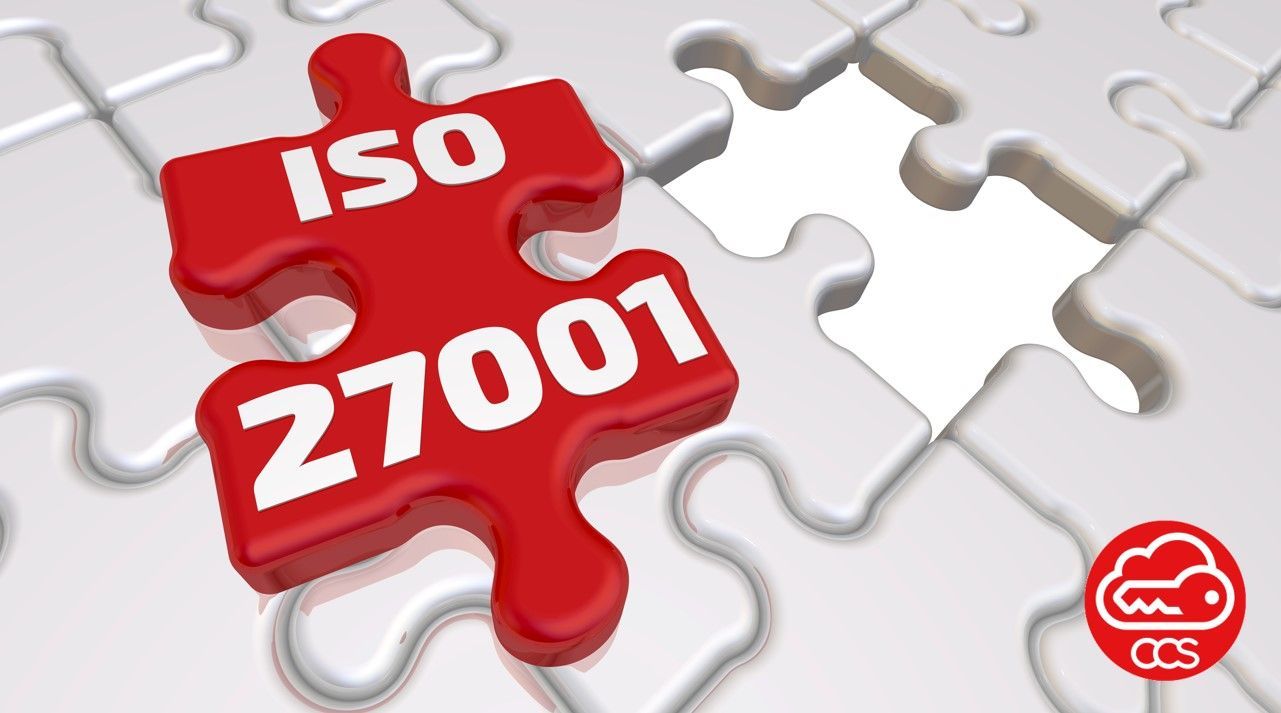The Impact of Digital Identity Systems: Pros, Cons, and Business Implications
Digital identity systems have evolved from a niche technology to a crucial element of modern life, offering a range of benefits for both individuals and businesses. As these systems become more widespread, it’s important to understand their advantages and challenges.
This article examines the pros and cons of digital identity for the public and explores how different types of businesses are affected by their introduction. Additionally, it discusses how ISO 27001 can assist businesses of all sizes in addressing these challenges.
Pros for the Public
Convenience and Efficiency
- Digital identity systems simplify the process of verifying one’s identity, reducing reliance on physical documents and manual checks. This results in quicker transactions, whether for opening a bank account, applying for a loan, or accessing government services. Automating these processes not only saves time but also reduces administrative burdens for individuals and service providers.
Enhanced Security
- Advanced security features such as biometric authentication and encryption make digital identity systems more secure than traditional methods. These technologies help protect against identity theft, fraud, and unauthorised access to sensitive information, providing individuals with greater peace of mind.
Reduced Fraud
- By making it more difficult for criminals to impersonate others or create fake identities, digital identity systems contribute to a more secure environment. This is particularly beneficial in sectors like banking, insurance, and e-commerce, where fraud can have significant financial and reputational impacts.
Improved Access to Services
- Digital identities facilitate easier access to essential services, especially for individuals in remote or underserved areas. By providing a verifiable digital identity, these systems help bridge gaps in service delivery and promote inclusivity.
Cons for the Public
Privacy Concerns
- The collection and storage of personal data in digital identity systems raise significant privacy issues. There is a risk that this data could be misused, shared without consent, or accessed by unauthorised parties. Ensuring robust privacy protections and transparency in data handling practices is crucial to addressing these concerns.
Data Security Risks
- Digital identity systems are targets for hackers and cybercriminals. A data breach can lead to severe consequences, including identity theft and financial loss. Implementing strong security measures and regularly updating them is essential to mitigate these risks.
Potential for Discrimination
- There is a risk that digital identity systems could inadvertently lead to discrimination based on data such as ethnicity, religion, or political beliefs. Safeguards must be in place to ensure that digital IDs are used fairly and do not lead to discriminatory practices.
Dependence on Technology
- Digital identity systems rely on technology, which can be prone to errors or cyber-attacks. This dependence can lead to disruptions in access to services or lock individuals out of their accounts. Developing resilient systems and backup solutions is necessary to prevent such issues.
Impact on Businesses
The introduction of digital identity systems has broad implications for businesses across various sectors:
Manufacturing
- Enhanced Supply Chain Security: Digital identities can improve the security and traceability of supply chains, reducing fraud and ensuring compliance.
- Operational Efficiency: Streamlined identity verification can accelerate processes such as supplier onboarding and access control within manufacturing facilities.
Construction
- Improved Access Control: Digital IDs can manage site access, ensuring only authorised personnel are present, thus enhancing security and compliance.
- Credential Verification: Digital systems facilitate the verification of qualifications and certifications of contractors and subcontractors, ensuring high standards on projects.
Finance
- Fraud Prevention: Digital identities help prevent fraud and identity theft by offering more secure verification methods.
- Customer Onboarding: Simplified verification processes can streamline customer onboarding and compliance with regulatory requirements.
Legal
- Client Verification: Law firms can use digital identities to verify clients and secure sensitive information, reducing the risk of fraud.
- Document Management: Digital IDs enable secure access to legal documents and case files, enhancing security and efficiency.
Retail and E-Commerce
- Secure Transactions: Digital identities improve security for online transactions, reducing fraud and chargebacks.
- Personalised Experience: Retailers can leverage digital identities to offer personalised services and promotions, enhancing customer satisfaction.
Healthcare
- Patient Access: Digital IDs streamline access to healthcare services and electronic health records, improving the efficiency of patient care.
- Credential Verification: Healthcare providers can more easily verify credentials and manage access to sensitive data.
Education
- Student and Staff Verification: Educational institutions can use digital IDs to verify identities and manage access to campus resources.
- Enhanced Learning Platforms: Secure and personalised access to online learning platforms is facilitated by digital identities.
Government and Public Sector
- Service Access: Digital identities enhance access to public services, streamline processes, and improve the security of sensitive data.
- Efficiency and Cost Reduction: Reducing the need for physical documentation and manual verification leads to cost savings and operational efficiencies.
How ISO 27001 Can Help
ISO 27001, the international standard for information security management, provides a robust framework for managing and securing sensitive data. It can be instrumental in addressing the challenges associated with digital identity systems across businesses of all sizes:
Enhanced Data Security
- ISO 27001 helps businesses implement a comprehensive Information Security Management System (ISMS), including risk assessments, security controls, and regular audits. This can significantly reduce the risk of data breaches and unauthorised access, addressing security concerns related to digital identity systems.
Privacy Protection
- By adhering to ISO 27001 standards, businesses can ensure that personal data is handled securely and in compliance with privacy regulations. The standard emphasises the need for data protection measures, including encryption, access controls, and secure data storage practices, which can mitigate privacy concerns associated with digital identities.
Risk Management
- ISO 27001 provides a structured approach to identifying, assessing, and managing risks. This includes risks associated with digital identity systems, such as potential for discrimination or system failures. Implementing these practices helps businesses proactively address and manage potential issues.
Regulatory Compliance
- Compliance with ISO 27001 can assist businesses in meeting legal and regulatory requirements related to data protection and information security. This is particularly valuable for sectors like finance, healthcare, and legal, where compliance with stringent regulations is crucial.
Building Trust
- Achieving ISO 27001 certification demonstrates a commitment to information security and data protection, which can enhance trust with customers, partners, and stakeholders. This is essential for businesses adopting digital identity systems, as it reassures all parties that their data is managed securely and responsibly.
Operational Resilience
- ISO 27001’s focus on continuous improvement and regular reviews helps businesses adapt to evolving security threats and technological changes. This resilience is crucial for maintaining effective digital identity systems and ensuring continuous access to services.
Digital identity systems offer significant benefits, including enhanced security, convenience, and efficiency. However, they also present challenges such as privacy concerns, data security risks, and potential discrimination. By implementing ISO 27001, businesses of all sizes can address these challenges effectively. The standard provides a comprehensive framework for managing information security, protecting privacy, and ensuring compliance, ultimately helping businesses leverage the advantages of digital identity systems while mitigating potential risks.




